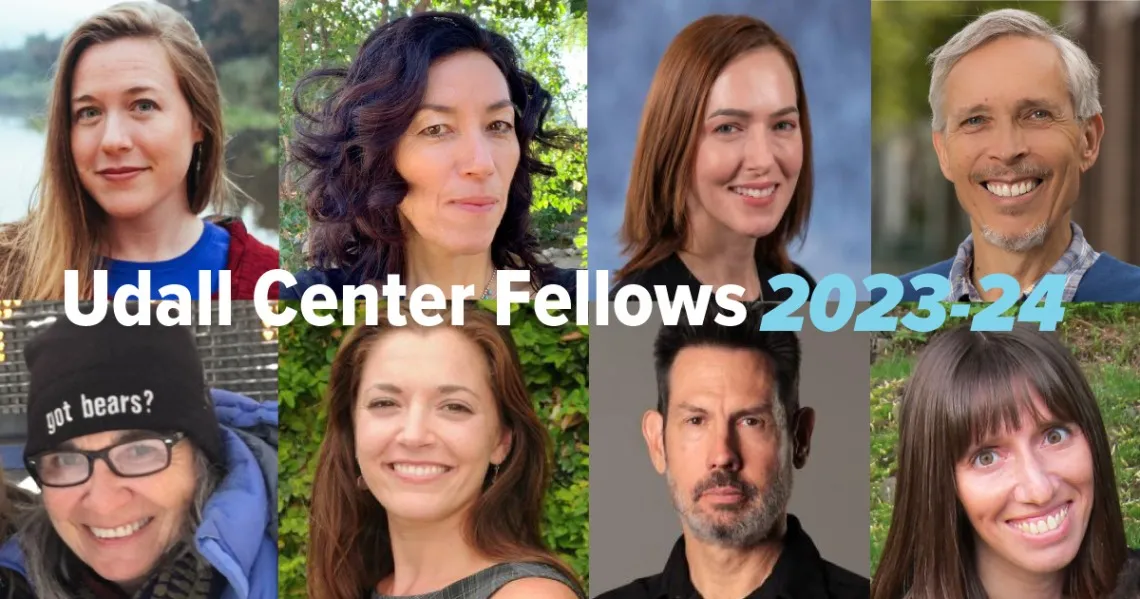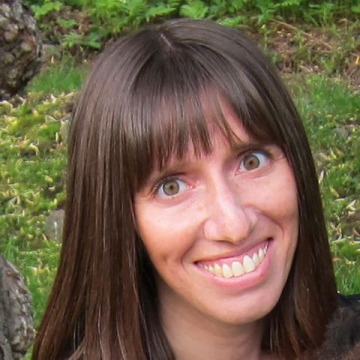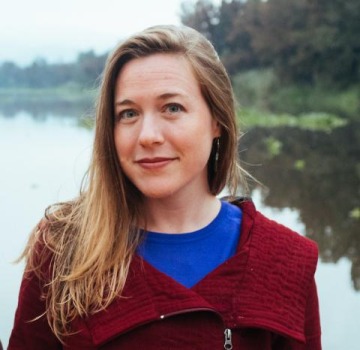Udall Center Fellows Will Focus on Environment and Public Policy

Arizona Institute for Resilience (AIR) joins the Udall Center for Studies in Public Policy to support the Udall Center Fellows program as it welcomes eight new fellows to its 2023-24 cohort.
This is the largest cohort of scholars accepted to the program since the 1996-97 academic year and it includes representation in three brand new research tracks; namely, the program’s Science, Environment, and Fine Arts Research Tracks.
AIR joins a number of other University of Arizona units in partnering with the Udall Center to support the Fellows Program: the Office of Research, Innovation and Impact (RII); the College of Social and Behavioral Sciences; the College of Fine Arts; and the College of Science.
Fellows are released from teaching for a semester while they engage in their policy-related research. Two fellows supported by AIR will focus their work in Environment and Public Policy.
"The Arizona Institute for Resilience is pleased to support the Environment and Public Policy Track of the Udall Center Fellows Program," said Sharon Collinge, Director of AIR. "This track provides us with an opportunity to recognize and help sustain the commendable efforts of UArizona faculty who are turning research into real-world applications with a positive impact on the environment."
Jennifer Roth-Gordon
Associate Professor, Anthropology; School of Anthropology

Project Track: Environment & Public Policy (in partnership with the Arizona Institute for Resilience)
Project Title: Extreme Heat and Thermal Control in Rio de Janeiro, Brazil
Rio de Janeiro, Brazil is recognized as one of the most vulnerable cities in the world when it comes to the risks associated with climate change.
In this new collaborative research project, Professor Roth-Gordon draws on anthropology’s strengths examining the interplay between individuals, culture, and society and her experience studying racial inequality for over 25 years to examine the impact of extreme heat in Rio de Janeiro. In order to raise awareness of the effects of structural racism and climate change on marginalized communities, her research team will be collecting ethnographic data on:
- an individual’s thermal control (the ability to regulate one’s ambient temperature and cool their body)
- infrastructural barriers and challenges (including electricity and access to AC)
- community-level heat mitigation efforts (such as planting gardens on roofs and city bus stops)
The Udall Center Fellowship will enable Roth-Gordon to collect preliminary data during the hottest time of year (January-March) and prepare external grants for a multi-year study that includes individual and group interviews and participant observation while Rio residents are at home, at work, and on public transportation. Through this project, she seeks to enhance our understanding of the personal and racial impacts of extreme heat, “offer(ing) critical data to lawmakers, health professionals, and urban planners.”
Beth Tellman
Assistant Professor; School of Geography, Development & Environment

Project Track: Environment & Public Policy (in partnership with the Arizona Institute for Resilience)
Project Title: Addressing flood vulnerability, exposure, and injustice in the US borderlands with satellite data
According to Professor Tellman, “Exposure (to flood risk) and vulnerability are inextricably linked.” People who live in areas that are subject to flooding often have no other option, or their exposure risk may be exacerbated by factors outside their control.
Tellman has spent the first two years of her employment at the University of Arizona “building a lab that has developed machine learning algorithms, datasets, and a satellite imagery data pipeline to quantify environmental changes that include land use change, flooding, and infrastructure development globally.”
During her time as a Udall Center Fellow, Tellman intends to “ground that research regionally by focusing (her) expertise on the US-Mexico borderlands,” where she says “(f)looding is a growing problem… due to urban growth in cities but (a) lack of drainage infrastructure in unincorporated communities, increasing precipitation extremes in a changing climate, and the US-Mexico border wall.”
Her work in this regard will focus on three fronts:
- Flood exposure, adaptation, and justice in colonias (peri-urban, informal communities)
- Flood risk related to the new border wall built since 2008, and
- The role of urbanization and real estate development increasing flood exposure.
Ultimately, Tellman says she hopes to “better leverage satellite and geospatial data to enact legal, regulatory, or procedural changes that could have a deep and longstanding impact to promote sustainability and justice for people and the environment.”

